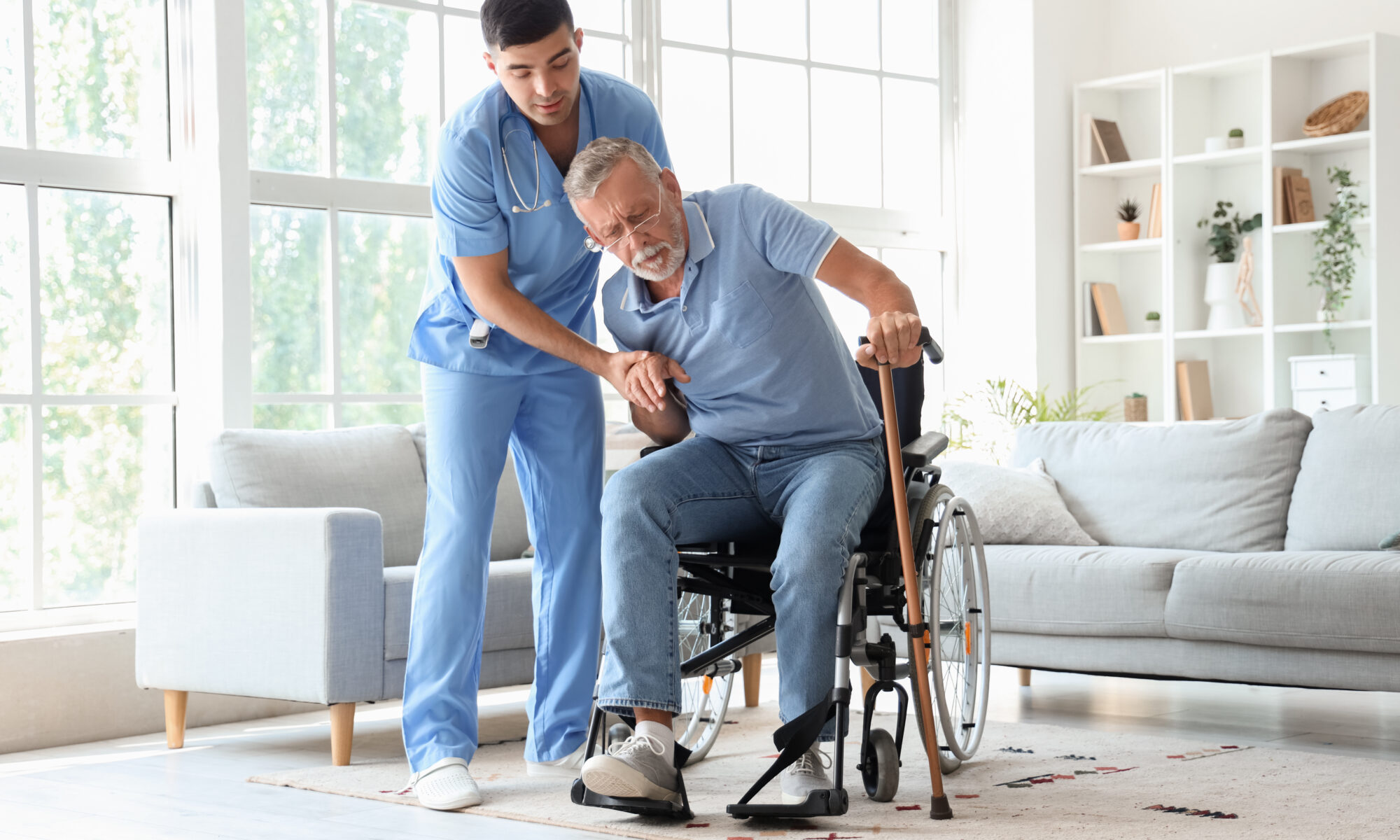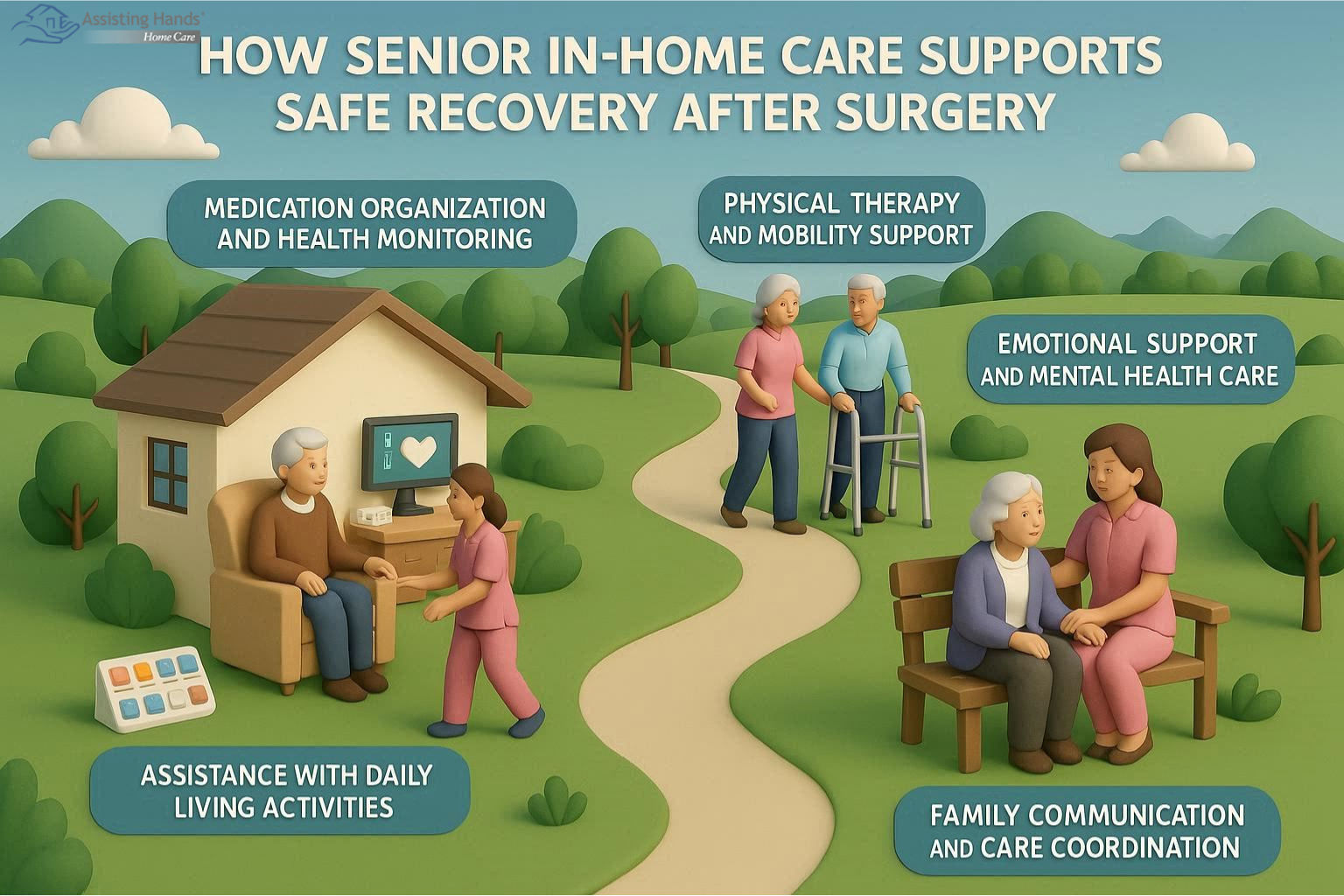
Table of Content
Post-surgery recovery requires specialized attention that goes beyond basic medical care. Home care providers play a crucial role in ensuring seniors heal safely and comfortably in their own homes while reducing the risk of complications.
Medication Organization and Health Monitoring
Professional caregivers ensure seniors follow prescribed medication schedules accurately, which is critical for proper healing and pain management. They monitor vital signs, watch for signs of infection, and maintain detailed records of the senior’s progress.
Key responsibilities include:
- Reminding seniors to take medications at correct times and dosages
- Tracking pain levels and reporting changes to healthcare providers
- Monitoring incision sites for signs of infection or complications
- Recording daily health observations and symptoms
- Coordinating with medical teams for follow-up appointments
This consistent oversight can prevent medication errors and catches potential problems early, reducing the likelihood of hospital readmission.

Assistance with Daily Living Activities
Recovery often limits the ability to perform routine tasks independently. Home care providers offer essential support while encouraging gradual independence as healing progresses.
Daily assistance includes:
- Personal hygiene and bathing with attention to surgical sites
- Meal preparation focused on nutrition that supports healing
- Light housekeeping to maintain a clean, safe environment
- Transportation to medical appointments and therapy sessions
- Help with mobility and transfers to prevent falls or strain
Caregivers adapt their support level based on the recovery stage, gradually reducing assistance as strength and mobility increase.
Seniors recovering at home after surgery often need help with the activities of daily living. Not every senior has the same care needs, which means they don’t all need the same type of home care. Wilmington families can rely on Assisting Hands Home Care to provide individualized care plans to meet their elderly loved ones’ unique care needs. Our caregivers help seniors focus on healthy lifestyle habits such as eating nutritious foods, exercising regularly, and maintaining strong social ties, and we offer mentally stimulating activities that can boost cognitive health and delay the onset of dementia.
Physical Therapy and Mobility Support
Many post-surgery patients require physical therapy to regain strength and range of motion. Home care providers work alongside physical therapists to ensure exercises are performed correctly and consistently.
Support activities include:
- Encouraging prescribed exercises and stretching routines
- Assisting with walking and mobility aids like walkers or canes
- Helping seniors navigate stairs or uneven surfaces safely
- Positioning seniors properly to prevent bed sores or stiffness
- Monitoring progress and reporting developments or concerns
This hands-on support accelerates recovery while reducing the risk of falls or reinjury during the vulnerable healing period.
Senior care experts are available to provide high-quality care to seniors on an as-needed basis. From assistance with mobility and exercise to providing transportation to the doctor’s office and social events, there are a variety of ways professional caregivers can help your aging loved one continue to live independently.
Emotional Support and Mental Health Care
Surgery and recovery can cause anxiety, depression, or frustration, particularly for seniors who value their independence. Compassionate caregivers provide emotional support that promotes mental wellbeing throughout the healing process.
Emotional care includes:
- Active listening and companionship to reduce isolation
- Encouraging participation in enjoyable activities within physical limitations
- Facilitating communication with family and friends
- Recognizing signs of depression or anxiety and alerting medical professionals
- Maintaining positive, encouraging attitudes that boost morale
This emotional support significantly impacts recovery speed and overall satisfaction with the care experience.
Family Communication and Care Coordination
Home care providers serve as vital communication links among seniors, families, and medical teams. They ensure everyone stays informed about recovery progress and any concerns that arise.
Communication responsibilities include:
- Providing regular updates to family members about their loved one’s status
- Coordinating care schedules with multiple healthcare providers
- Documenting important changes or events for medical records
- Facilitating family meetings or consultations as needed
- Educating family members about proper care techniques
This coordination ensures seamless care transitions and helps families feel confident about their loved ones’ recovery progress.
If your senior loved one needs hourly or live-in care, Wilmington Assisting Hands Home Care can help. Our caregivers can assist with exercise and mobility, prepare nutritious meals, provide timely medication reminders, and help with a wide array of other important daily tasks. We will work with you to create a customized home care plan that’s suited for your loved one’s unique needs. Call the Assisting Hands Home Care team today.








